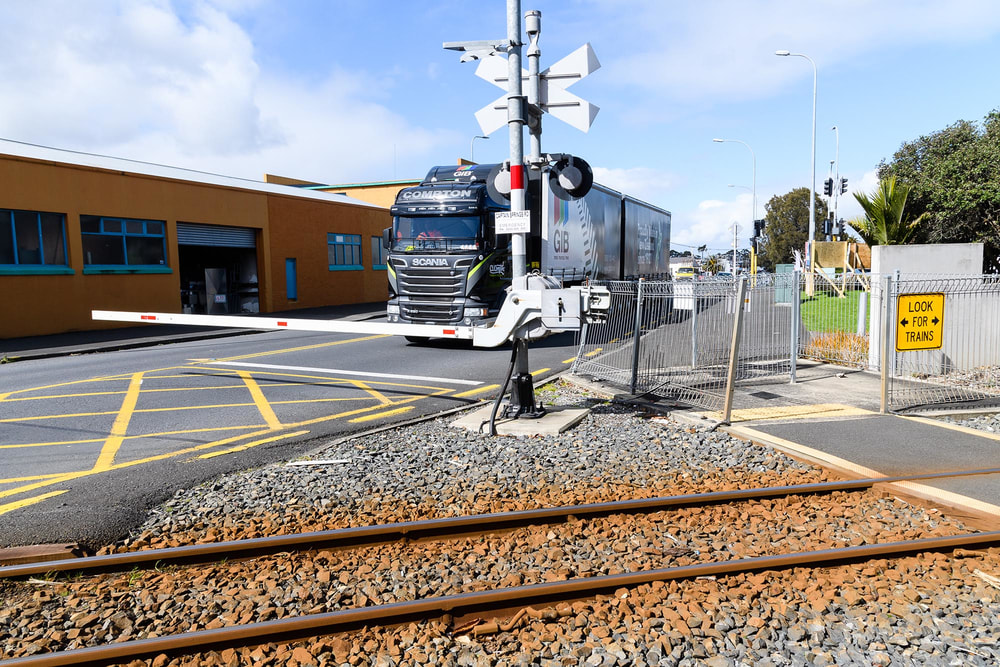A collision between a heavy vehicle and a passenger train could be catastrophic
While collisions between trains and heavy vehicles are relatively infrequent in comparison with vehicle to vehicle accidents on the road, they have the potential for considerable loss of life and serious trauma. A collision between a freight train and a bus, or a passenger train and a heavy vehicle could be catastrophic.
Recently, TrackSAFE NZ conducted research which looked at how heavy vehicle drivers perceive the risk around railway level crossings.
The research was carried out by Wellington-based research company UMR.

The research included a survey of around 400 drivers measuring their knowledge and behaviours around level crossings. This was followed by focus groups in Auckland, Christchurch and Palmerston North that further explored the perceptions, attitudes and knowledge of drivers.
Research findings included:
- Drivers (especially newly qualified drivers) need to educate themselves and take time to plan and know their route and their vehicle. The simple steps of stopping, looking and listening as well as focusing on the task at hand were the key messages that the industry thinks are important.
- Agencies have a role to play in improving safety at level crossings. Suggestions included improving visibility, better signage, road infrastructure improvements and using technology such as apps to alert drivers to dangerous crossings.
- Drivers are acutely aware of the dangers associated with some railway level crossings.
- They have developed strategies to try to make crossing the tracks safer, including using spotters, taking alternative routes and stopping, looking and listening for trains. However, this can all be in vain if visibility is poor, or if drivers are forced to stop with part of their vehicle on the railway tracks.
- Heavy vehicle drivers worry that this situation will only get worse as bigger trucks become more common on New Zealand roads and the number of trains increase.
- Heavy vehicle drivers generally believe that railway level crossings are safer than roads, although this depends on the type and location of the crossing, on driver experience and situational awareness.
- They do not believe New Zealand roads are generally safe and put this down to poor driving standards – speeding, dangerous overtaking, indecisiveness, texting – as much as they do to the state of the road network itself.
- Heavy vehicle drivers believe most New Zealand motorists don’t understand the challenges of driving a heavy vehicle and why heavy vehicle drivers take the actions they do. If motorists understood the challenges of driving a big truck it would improve safety on the roads generally as well as at level crossings.
Copies of the research are available to download.

 track
track